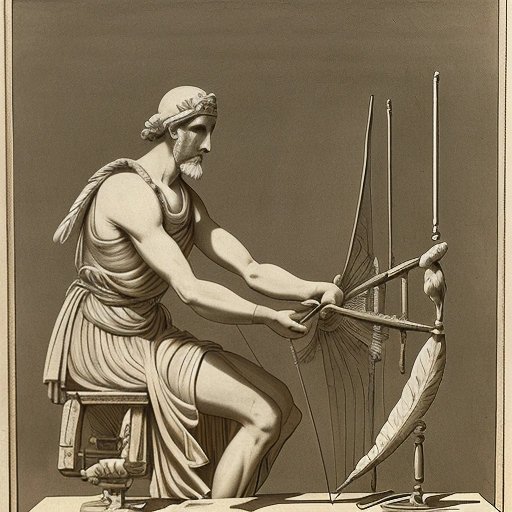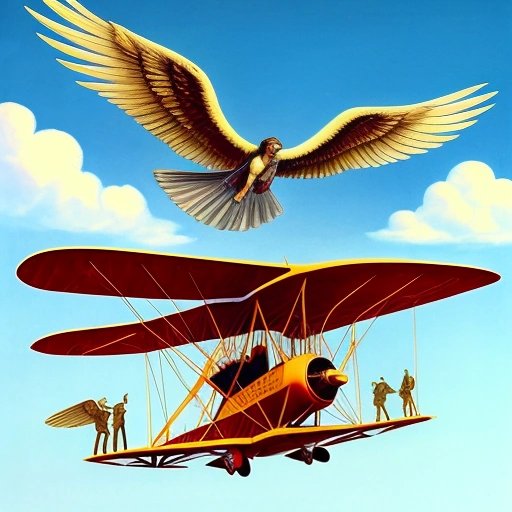The world of historical research was turned upside down recently when a groundbreaking discovery emerged in relation to the ancient myth of Icarus. It appears that the widely held belief that Icarus was a foolish youth who flew too close to the sun may, in fact, be a gross simplification of the truth. The fascinating new findings suggest that Icarus was actually a dedicated inventor with questionable mechanical engineering skills, and who regrettably fell short in his ambitious attempt to reach the heavens.
The scholarly paper, entitled, "Airborne Aspirations: A Reappraisal of Icarus and his Flight Instruments," has thrown a spanner in the works of the established interpretation of this ancient legend. One of the paper's authors, Professor Gideon Featherstonehaugh, explains that the tale of Icarus has been misinterpreted and misrepresented over the centuries. He states, "It's time to set the record straight. Icarus wasn't merely a reckless youth who succumbed to hubris. He was a budding engineer whose blueprint for converging feathers, wax, and his own mortal frame simply fell short of success."
According to Professor Featherstonehaugh, an analysis of historical records and surviving fragments of Icarus's original wing design have exposed a number of critical flaws in his engineering. The most significant issue appears to be a lack of understanding of basic aerodynamic principles. Additionally, there is compelling evidence that his choice of wax as an adhesive material was not up to the Herculean task of withstanding the heat of the sun. "Our examination of a small wax sample taken from Icarus's original wing fragments has revealed that this adhesive compound was more suitable for candle-making than enabling human flight," commented Dr. Featherstonehaugh.
Another remarkable aspect of this groundbreaking study is the authors' fervent argument that Icarus may, in fact, have been a pioneer of aviation. Unbeknownst to the world, the ill-fated engineer was apparently attempting to develop a radical method of airborne transportation over two millennia before the famous Wright brothers even took to the skies. If this revisionist interpretation of the Icarus legend is to be believed, the ancient Greek youth was not so much the architect of his own demise as an unwitting martyr for the cause of human achievement.
Unfortunately, the weight of history has not been kind to Icarus's mechanical endeavors. “The tragic reality is that Icarus's ill-fated flight has historically been seen as a cautionary tale against foolish ambition and the folly of human pride," Dr. Annabelle Agrippina, a leading expert on mythology and aviation history, remarked. "Yet in the light of this new research, we might want to reconsider our perception of this young inventor who was, perhaps, not so much a victim of hubris as an unfortunate casualty of his own questionable engineering abilities."
The academic community is abuzz with discussion and debate in the wake of this paradigm-shifting historical breakthrough. It remains unclear whether the reevaluation of Icarus's tragic tale will spark a more sympathetic understanding of his character, or merely serve as a striking reminder that no amount of ambition can compensate for a solid grounding in aerodynamics and structural engineering.
One thing seems certain: history will never look at Icarus the same way again. In the words of Dr. Agrippina, "The legendary Icarus has now become the poster boy for engineering gaffes and misguided ambition. And that, my colleagues, may be the true tragedy of his tale." One can only hope that the purported inventor would take some solace in his newfound status as a cautionary example, an inspiration for aspiring engineers and inventors to approach their own airborne aspirations with a healthy dose of humility and a keen understanding of the principles of flight.


